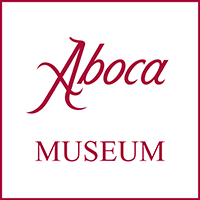Detail book
De rerum praenotione libri novem. Pro veritate religionis, contra superstitiosas vanitates editi. De fide theoremata. De morte Christi & propria cogitanda libri tres. De studio divinæ & humanæ philosophiæ duo. De divini amoris imaginatione unus.
Religione - Filosofia - Astrologia
![]() This book is composed of about ten parts, which later converged into a single German edition, published in 1506. In each part the author thoroughly examines a different aspect of his thought.
Pico della Mirandola had a strong passion for astrology, prophecies and the mysticism of numbers and was firmly convinced of the truth of these "sciences".
Humans are the core element of his works. According to the author, they have all the germs of life God gave to them and are the creatures that are in closest contact with Nature (reign of necessity).
The first nine parts, called books, contain a meticulous analysis of everything related to the term "prenotione" (pre-knowledge) and are divided into different chapters.
The first book contains the definition of this phenomenon, together with some considerations on its use and abuse, and how it affects religion.
The second book is dedicated to the figure of the prophet and the various ways he can utter his divinations. The third book is about those prophecies "secundum natura", in which Nature shows itself to all living creatures. The author mentions in particular those kinds of "prenotionae" noticed by farm workers, sailors, shepherds and physicians and in the fifth paragraph, here reproduced, he lists all the premonitory signs which farmers use, together with weather phenomena, to predict the future.
In the seventh chapter he talks about those predictions "de futuris aegritudinis" (on future grief and worries), "ex observationae luminarium" (observing stars) made by physicians who take into account the influence of lunar phases.
In the eighth chapter the author claims that sometimes these precognitions can be quite contradictory, if we compare what shepherds, physicians, wool-spinners and soldiers say.
In the fourth book Pico della Mirandola rails against idolatries and satanic rituals, and in the fifth he carefully lists all the various cases in which astrology can prove useful. In the last four parts there are precise references to Plato, Bacon and Apollonio from Tiana.
The other books which are not part of the De rerum prenotione have a different table of contents and they deal with philosophical or religious subjects connected to the Catholic religion, like in the De morte Christi & propria cogitanda..., De studio divinae & humanae philosophiae... and the De divini amoris imaginatione...
This book is composed of about ten parts, which later converged into a single German edition, published in 1506. In each part the author thoroughly examines a different aspect of his thought.
Pico della Mirandola had a strong passion for astrology, prophecies and the mysticism of numbers and was firmly convinced of the truth of these "sciences".
Humans are the core element of his works. According to the author, they have all the germs of life God gave to them and are the creatures that are in closest contact with Nature (reign of necessity).
The first nine parts, called books, contain a meticulous analysis of everything related to the term "prenotione" (pre-knowledge) and are divided into different chapters.
The first book contains the definition of this phenomenon, together with some considerations on its use and abuse, and how it affects religion.
The second book is dedicated to the figure of the prophet and the various ways he can utter his divinations. The third book is about those prophecies "secundum natura", in which Nature shows itself to all living creatures. The author mentions in particular those kinds of "prenotionae" noticed by farm workers, sailors, shepherds and physicians and in the fifth paragraph, here reproduced, he lists all the premonitory signs which farmers use, together with weather phenomena, to predict the future.
In the seventh chapter he talks about those predictions "de futuris aegritudinis" (on future grief and worries), "ex observationae luminarium" (observing stars) made by physicians who take into account the influence of lunar phases.
In the eighth chapter the author claims that sometimes these precognitions can be quite contradictory, if we compare what shepherds, physicians, wool-spinners and soldiers say.
In the fourth book Pico della Mirandola rails against idolatries and satanic rituals, and in the fifth he carefully lists all the various cases in which astrology can prove useful. In the last four parts there are precise references to Plato, Bacon and Apollonio from Tiana.
The other books which are not part of the De rerum prenotione have a different table of contents and they deal with philosophical or religious subjects connected to the Catholic religion, like in the De morte Christi & propria cogitanda..., De studio divinae & humanae philosophiae... and the De divini amoris imaginatione...



















